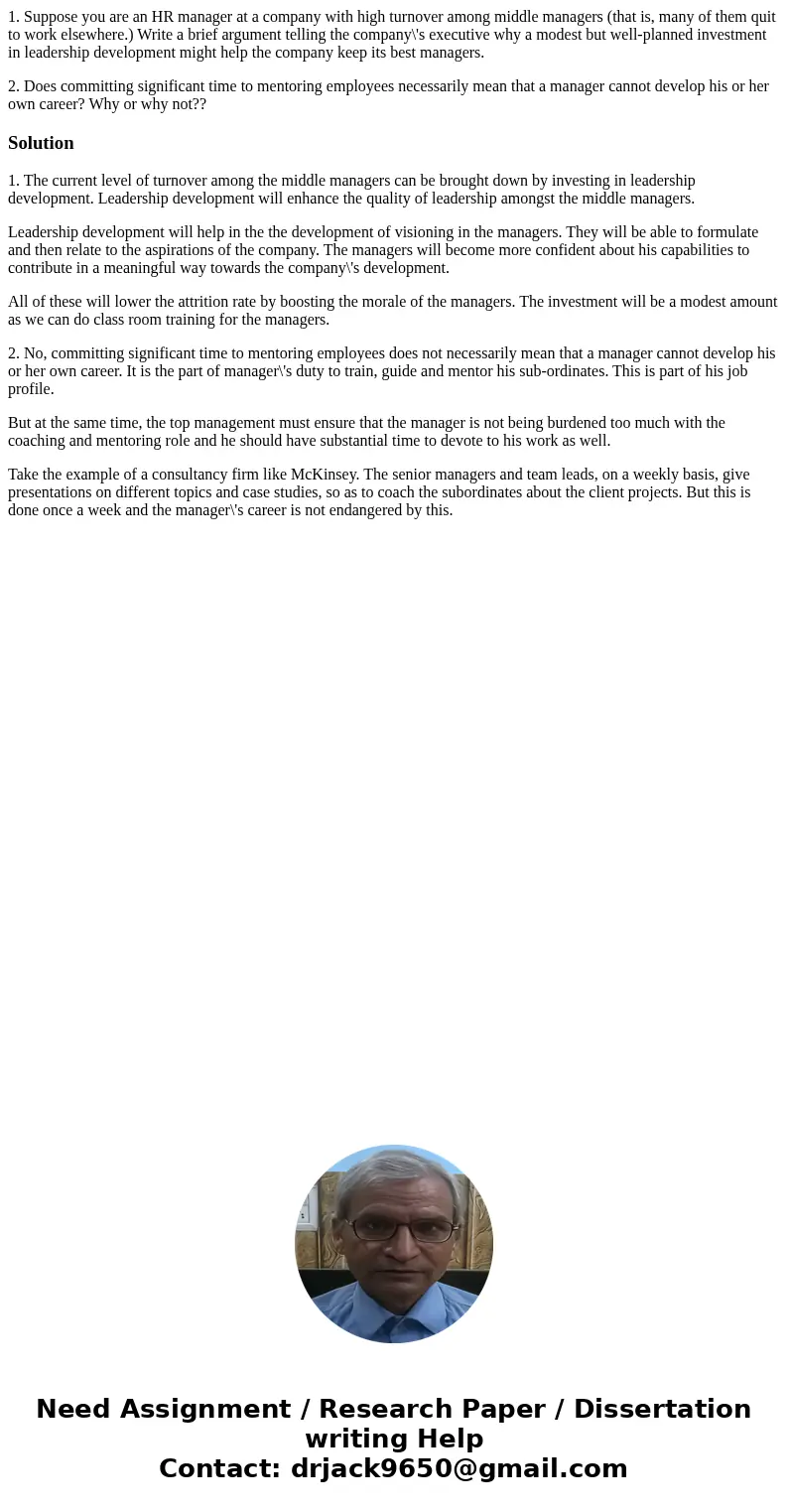1 Suppose you are an HR manager at a company with high turno
1. Suppose you are an HR manager at a company with high turnover among middle managers (that is, many of them quit to work elsewhere.) Write a brief argument telling the company\'s executive why a modest but well-planned investment in leadership development might help the company keep its best managers.
2. Does committing significant time to mentoring employees necessarily mean that a manager cannot develop his or her own career? Why or why not??
Solution
1. The current level of turnover among the middle managers can be brought down by investing in leadership development. Leadership development will enhance the quality of leadership amongst the middle managers.
Leadership development will help in the the development of visioning in the managers. They will be able to formulate and then relate to the aspirations of the company. The managers will become more confident about his capabilities to contribute in a meaningful way towards the company\'s development.
All of these will lower the attrition rate by boosting the morale of the managers. The investment will be a modest amount as we can do class room training for the managers.
2. No, committing significant time to mentoring employees does not necessarily mean that a manager cannot develop his or her own career. It is the part of manager\'s duty to train, guide and mentor his sub-ordinates. This is part of his job profile.
But at the same time, the top management must ensure that the manager is not being burdened too much with the coaching and mentoring role and he should have substantial time to devote to his work as well.
Take the example of a consultancy firm like McKinsey. The senior managers and team leads, on a weekly basis, give presentations on different topics and case studies, so as to coach the subordinates about the client projects. But this is done once a week and the manager\'s career is not endangered by this.

 Homework Sourse
Homework Sourse